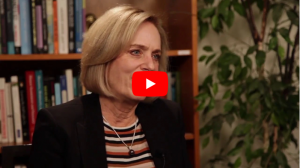What Love is Not: A Proven Method to Make Love Last
 Long have poets and scholars, romantics and intellects, teenagers and grandparents pondered the question: What is love? Yet, as we repeatedly find ourselves in the same relationship pitfalls, broken-hearted or fervently re-seeking that initial spark, perhaps a more beneficial question is, what isn’t love?
Long have poets and scholars, romantics and intellects, teenagers and grandparents pondered the question: What is love? Yet, as we repeatedly find ourselves in the same relationship pitfalls, broken-hearted or fervently re-seeking that initial spark, perhaps a more beneficial question is, what isn’t love?
As much as we as a species are capable of involuntarily plummeting ourselves into the magical glow of being in love, keeping ourselves in that carefree, heartfelt romantic space is tricky. Falling out of love and into routine, out of kindness into irritability, and out of respect into annoyance is all too easy. So why does this shift occur, and how can we evade it? By identifying what love is not, we can avoid the relationship “don’ts” that lead to our romantic demise.
Love is not selfish, demanding or a proprietary right over the other.
When we first date someone, rarely do we find ourselves saying things like, “You’re going out to meet your friends again? But I thought you were going to stay in and rent a movie with me?” or “Why do you take so long to get ready? You always keep me waiting forever.” The minute we start treating our partners as an extension of ourselves, criticizing their uniqueness and commanding their conformity, we not only damage their attraction to us, we pretty much obliterate our own attraction to them. Treating our partners as independent and separate individuals may force us to face our own insecurities, jealousy, and self-critical thoughts, but it will help us grow stronger, which in turn leads to a more real, more solid connection with our partner.
Love is never submission or dominance, emotional coercion or manipulation.
Emotional game playing is a defense mechanism formed to protect ourselves from the hurts, rejections, and uncertainties that come with feeling vulnerable to, invested in, and wanting something from a completely separate human being. Playing the victim to a dominant personality or the boss to someone who’s easy to influence is a destructive process that is all too easy to lose track of.
Because many of these manipulative behaviors are unconscious and not intended to be malicious, we should always pay attention to what our actions are based on. Are we falling silent when we don’t get what we want, so our partners will notice and feel sorry for us? Are we feigning flexibility, while covertly setting terms and restrictions to which our partner must comply? By becoming aware of these patterns, we are able to pinpoint and alter damaging behaviors and take a chance on expressing real wanting directly, asking for what we want and need from our partner. This allows us to feel our partner’s real feelings toward us. Getting something from our partner through manipulation keeps us from experiencing his or her real feelings toward us.
Love is not the desperate attempt to deny aloneness or a desire for fused identity.
When you find yourself thinking of love as a means of being “taken care of” or “not winding up alone” you may be entering dangerous territory. Love is a feeling you have for someone else as well as an appreciation of a feeling directed toward you. As much as we revel in the joy of a shared life, that joy can only be preserved when we recognize that a healthy relationship consists of two lives being led in harmony and not a single life being led by two people.
Sharing activities, stories, friends, and children are all meaningful elements of a relationship. But denying the fact that every human and experience is unique is denying ourselves and our loved ones a partnership based on equality, reality, and genuine affection for one another. When we merge our identity with our partners we lose attraction to them. They become no more interesting to us than our right arm. Yet, if the relationship ends, we feel devastated, as though we have lost our right arm.
Love is not to be confused with emotional hunger.
Feeding off of another person is not love. Many people are left with a feeling of emotional emptiness from their childhoods. Often, as adults, we still see ourselves as these empty children and turn to our partner to fill that emotional void. When we allow a lack of maturity to weigh on our partners, we drain them of their vitality and the esteem they once had for the developed individuals we are truly capable of being. It is important to avoid looking to our partners for an unhealthy dose of definition, praise, reassurance or approval. These are attributes we must develop within ourselves in order to realize a full and satisfying relationship with another person.
Love is not an inner state of mind that has no recognizable outward manifestations.
How many times have we found ourselves bickering, scowling, snapping at, and exhausting our partners, then casually declaring how in love we are? Often, we have formed a fantasy bond, an illusion of connection, with our partner. We relate to them in fantasy, but we don’t treat them with kindness and love in reality. Love is an action as much as it is a state of being. If we purport to love someone, there should be actual manifestations of that love and behavior that is observable to others.
When we find ourselves mistreating our loved ones, it is important to understand that the inner critic we all possess in our minds that encourages us to fear and destroy true intimacy can be just as savage to our partners as they are to us. Thoughts about ourselves such as, “I’m not loveable. She will never care for me the way I care for her” can just as easily turn on our partners suggesting things like, “He is so selfish. Why doesn’t he ever think of me?”
These thoughts dictate our behaviors, allowing us to treat our partners with the same scrutiny and unkindness with which we treat ourselves. Hitting the brakes on these behaviors, no matter how compelled we are to act them out, can help us stand up to these critical inner voices and have more compassion and love toward our partners as well as toward ourselves.
Tags: fantasy bond, fear of intimacy, intimacy problems, love, relationship advice, relationships









So true! I lost the one I love because of my insecurity. The fear of rejection was holding me back in expressing and feeling my love for her.
She finally broke up with me and after a few weeks she had a new boyfriend. I was devastated. Only then I saw what I did wrong..
I came to realise I had a fantasy bond with her, i just wanted to be in a relationship and not truly love her like she deserved. I really got to work on my self esteem, and hopefully find love again someday.. Thank you for these great insights!
Jeroen